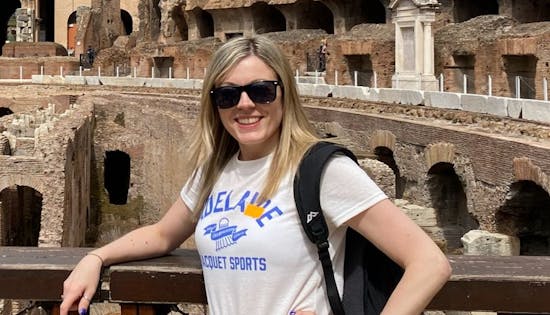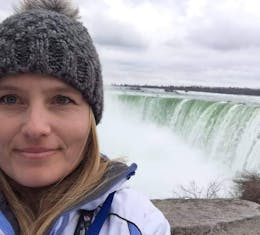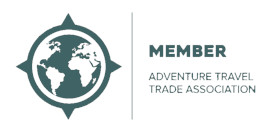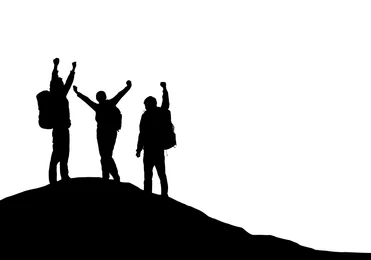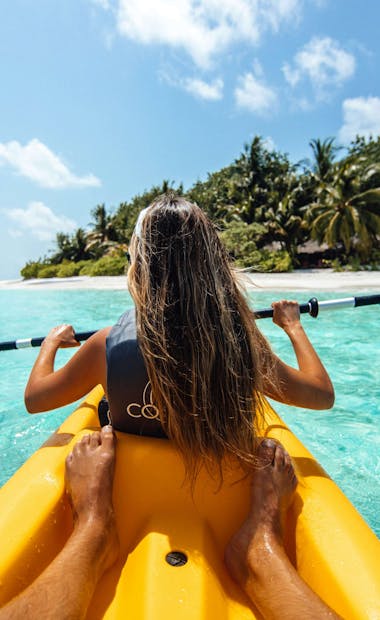Morocco Tours
Cycle in the Atlas Mountains, ride camels in the desert, experience the souks in Marrakech
Popular tours
- Save26%
 View Tour
View TourMorocco Kasbahs & Desert - 8 Days
- Casablanca to Marrakesh
- Age group: 12 - 100
- Max group size: 14
Was:£659From£489  View Tour
View TourWinter Climb Mount Toubkal - 3 Days
- Marrakech to Marrakesh
- Age group: 12 - 80
- Max group size: 18
From£319- Save16%
 View Tour
View TourNorthern Morocco: Blue Cities & Bustling Marrakech - 7 Days
- Casablanca to Marrakesh
- Age group: 18 - 39
- Max group size: 14
Was:£399From£336 - Save16%
 View Tour
View TourMoroccan Desert Adventure: River Canyons & Camels - 7 Days
- Marrakesh to Marrakesh
- Age group: 18 - 39
- Max group size: 14
Was:£429From£361  View Tour
View TourClimb Mount Toubkal Long Weekend - 4 Days
- Marrakesh to Marrakesh
- Age group: 18 - 99
- Max group size: 16
From£352- Save16%
 View Tour
View TourMorocco: Deserts & Beaches - 11 Days
- Marrakesh to Marrakesh
- Age group: 18 - 39
- Max group size: 14
Was:£679From£571
Morocco Tours
Morocco is Europe’s gateway to the African continent and as such oozes exotic charm and adventure whilst also being extremely accessible for those wanting to test the waters before heading further inland. With stunning cities, immeasurable history and culture, delicious food, a beautiful coastline and the threshold to the Sahara desert, the real question is why shouldn’t you visit? Spoiler alert: You should.
The medinas in Fes and Marrakech are a labyrinth of artisanal wares, foods, spices, clothes and magic carpets that you’ll just love getting lost in. Whereas the medina of Marrakech is the most famous and overwhelming, Fes (a UNESCO world site) is far less intimidating.
Essaouira isn’t on everyone’s list but should be: not only is it a beautiful coastal town with surfing for days, but it also holds medina charm with all the chill vibes you’d expect from a Surfer’s paradise. With rumours of regular visits from the likes of Jimi Hendrix and Cat Stevens, the locals are very proud to tell you that "Castles Made of Sand" is said to be inspired by the ruins of the Borj El-Berod watchtower.
Chefchaouen is as beautiful as everyone says and the photos show. It is well worth a visit to the Andalusian quarter (interestingly, the only part of the city that is blue) to feel like you’ve stepped into a fairytale land, and get some amazing shots.
For the adventurous, try desert treks into the Sahara, water sports and surfing in Essaouira, and trekking and mountaineering in the Atlas Mountains.
Is Morocco a safe country to visit?
Morocco is generally considered a safe country to visit for tourists. The Moroccan government places great importance on ensuring the safety and security of visitors. However, it's always wise to exercise common sense and take precautions to ensure a safe and enjoyable trip. Here are some important points to consider regarding safety in Morocco:
Low Crime Rate: Morocco has a relatively low crime rate, particularly when it comes to violent crimes against tourists. However, like any travel destination, it's important to stay vigilant and take precautions to protect yourself and your belongings.
Tourist Police: Morocco has dedicated tourist police who are present in popular tourist areas to assist visitors and maintain security. They can provide guidance, assistance, and emergency services if needed.
Petty Theft: As with many tourist destinations, petty theft and pickpocketing can occur, particularly in crowded tourist areas, markets, and public transportation. It's advisable to take common-sense precautions such as keeping an eye on your belongings, using a money belt or secure bag, and avoiding displaying expensive items openly.
Scams: Like in any popular tourist destination, there may be occasional scams targeting tourists. Be cautious of anyone offering unsolicited help or trying to sell you goods or services at inflated prices. Use reputable tour operators and official guides to avoid falling victim to scams.
Solo Travellers: Morocco is generally safe for solo travellers, both male and female. However, solo travellers should exercise the same precautions as they would in any foreign country, such as avoiding isolated areas at night and staying in well-lit and populated areas.
Political Stability: Morocco has maintained political stability compared to some other countries in the region. The government has implemented measures to ensure the safety of visitors and has a strong focus on tourism as an important sector of the economy.
Health and Hygiene: It's always advisable to take necessary health precautions when traveling to any country, including Morocco. Ensure you have up-to-date vaccinations, drink bottled water or use a water purifier, and practice good hygiene.
While Morocco is considered safe, it's important to stay informed about the latest travel advisories and follow any recommendations or warnings issued by your government or relevant authorities. Additionally, researching and respecting local customs, traditions, and laws will contribute to a more positive and safe travel experience in Morocco.
When is the best time to visit Morocco?
The best time to visit Morocco largely depends on your preferences and the specific experiences you seek. Morocco has a diverse climate due to its varied geography, which includes mountains, coastlines, and deserts. Here's a breakdown of the seasons to help you determine the best time to visit:
Spring (March to May): Spring is generally considered one of the best times to visit Morocco. The weather is mild and pleasant, with temperatures ranging from 15°C to 25°C (59°F to 77°F). It's a great time to explore cities like Marrakech, Fes, and Rabat, as well as enjoy hiking in the Atlas Mountains. The landscapes are lush and vibrant, and you can witness the blooming of flowers and blossoms.
Summer (June to August): Summers in Morocco can be quite hot, especially in inland areas and desert regions. Temperatures can soar above 40°C (104°F), making sightseeing and outdoor activities challenging during the day. However, coastal cities like Essaouira and Agadir offer a refreshing escape with milder temperatures and sea breezes. If you plan to visit the Sahara Desert, be prepared for scorching temperatures during the day but cooler nights.
Autumn (September to November): Autumn is another excellent time to visit Morocco, especially in September and October. The weather is pleasant, with temperatures ranging from 20°C to 30°C (68°F to 86°F). It's a great time to explore the imperial cities, trek in the mountains, and visit the desert without the extreme heat of summer. The autumn landscapes are also quite beautiful.
Winter (December to February): Winters in Morocco are relatively mild, especially along the coast. However, inland areas and the Atlas Mountains can experience colder temperatures, with some regions even seeing snowfall. Coastal cities like Casablanca and Tangier are popular during this time due to their milder climates. If you're interested in winter sports, the Atlas Mountains offer skiing and snowboarding opportunities.
It's worth noting that Morocco is a year-round destination, and each season has its own unique charm and experiences. However, considering the weather, activities, and crowds, spring (March to May) and autumn (September to November) are generally considered the best times to visit Morocco. These seasons offer pleasant temperatures, comfortable conditions for exploring, and opportunities to witness festivals and cultural events.
Do I require a visa to travel to Morocco?
The visa requirements for Morocco vary depending on your nationality and the duration of your visit. Here are some general guidelines regarding visas for visiting Morocco:
Visa-Free Countries: Citizens of many countries, including the United States, Canada, the United Kingdom, Australia, and most European Union countries, can enter Morocco visa-free for tourism purposes for up to 90 days. This means you can visit Morocco for leisure, sightseeing, and other non-work-related activities without needing a visa.
Visa on Arrival: Some nationalities, including citizens of certain African and Asian countries, may be eligible for a visa on arrival. This allows you to obtain a visa upon arrival at the airport or land border crossing. The visa on arrival is typically valid for a shorter period, usually up to 30 days. It's advisable to check with the Moroccan embassy or consulate in your country of residence to confirm if you're eligible for a visa on arrival.
Visa Requirements for Longer Stays: If you plan to stay in Morocco for more than the permitted visa-free period or for purposes other than tourism (such as work or study), you will likely need to apply for a visa before your trip. It's important to contact the nearest Moroccan embassy or consulate in your country to obtain the most up-to-date and accurate information regarding visa requirements, application procedures, and any supporting documents you may need.
Passport Validity: Regardless of your nationality, your passport should be valid for at least six months beyond your intended departure date from Morocco. Ensure that your passport has sufficient blank pages for entry and exit stamps.
It's essential to check the visa requirements specific to your nationality and the purpose and duration of your visit to Morocco. Visa regulations can change, so it's always best to consult with the Moroccan embassy or consulate or seek advice from a qualified travel agent or visa service to ensure you have the necessary documentation before you travel.
For up to date advice, check the FCO website.
What is the currency in Morocco, and can I use credit cards?
The official currency of Morocco is the Moroccan Dirham (MAD). Here's some information about using currency and credit cards in Morocco:
Moroccan Dirham (MAD): It's advisable to carry some Moroccan Dirhams in cash for smaller expenses and places that may not accept credit cards. Currency exchange services are available at international airports, banks, and authorized exchange offices throughout major cities. It's recommended to exchange money at official exchange offices or banks to ensure you receive a fair exchange rate. Avoid exchanging money with street vendors or unauthorized individuals.
Credit Cards: Credit cards are widely accepted in hotels, upscale restaurants, larger shops, and tourist establishments in major cities such as Marrakech, Casablanca, and Fes. Visa and Mastercard are the most commonly accepted cards, while American Express and Discover may have more limited acceptance. It's always a good idea to carry some cash as well, as smaller businesses, local markets, and remote areas may prefer cash payments.
ATMs: ATMs (Automated Teller Machines) are widely available in major cities and towns throughout Morocco. They accept major international debit and credit cards, allowing you to withdraw cash in Moroccan Dirhams. It's advisable to use ATMs located within banks or reputable establishments for security purposes.
Notify Your Bank: Before traveling to Morocco, inform your bank or credit card provider about your travel plans. This helps prevent your cards from being blocked due to suspicious activity when used in a foreign country. It's also a good idea to note down the emergency contact numbers of your bank or credit card provider in case you need to report a lost or stolen card.
Cash Tips: Tipping in Morocco is customary, especially for services such as restaurants, hotels, and guides. While it's not mandatory, it's a common practice to leave a tip of around 10% of the bill or a small amount for services received. It's advisable to carry some small denomination notes for tipping purposes.
Currency Exchange Restrictions: Upon departure from Morocco, there are restrictions on taking Moroccan Dirhams out of the country. You can exchange your remaining Dirhams back to your home currency at international airports or authorized exchange offices before leaving.
Remember to exercise caution when using credit cards and ATMs to protect yourself against card skimming or fraud. Keep an eye on your card during transactions and use ATMs located in secure and well-lit areas.
Overall, having a combination of Moroccan Dirhams for cash transactions and a credit card for larger purchases or emergencies will help ensure you have convenient access to funds during your trip to Morocco.
What are the must-see places in Morocco?
Morocco is a country rich in cultural heritage, stunning landscapes, and vibrant cities. Here are some must-see places in Morocco that offer unique experiences:
Marrakech: Known as the "Red City," Marrakech is a captivating destination. Explore the bustling medina (old city) with its vibrant souks, visit the iconic Koutoubia Mosque, wander through the serene Majorelle Garden, and experience the lively atmosphere of Djemaa el-Fna square. Don't miss the stunning Bahia Palace and the historical Saadian Tombs.
Fes: Fes is Morocco's oldest imperial city and a UNESCO World Heritage site. Get lost in the labyrinthine streets of the medina, home to the world's oldest university, Al Quaraouiyine. Visit the beautiful Bou Inania Madrasa, explore the tanneries, and marvel at the intricately decorated mosques and architectural gems like the Al-Attarine Madrasa and the Qaraouiyine Mosque.
Chefchaouen: This charming blue-painted city nestled in the Rif Mountains is a photographer's dream. Stroll through the narrow blue streets, browse the local markets, and enjoy the relaxed atmosphere. The blue hues give Chefchaouen a unique and enchanting ambiance.
Sahara Desert: A visit to Morocco is incomplete without experiencing the majestic Sahara Desert. Take a camel trek and venture into the golden dunes of Erg Chebbi or Erg Chigaga. Spend a night in a traditional desert camp, enjoy a mesmerizing sunset, and immerse yourself in the peacefulness and beauty of the desert.
Atlas Mountains: The Atlas Mountains offer breathtaking landscapes and opportunities for outdoor adventures. Explore the picturesque Ourika Valley, hike through the stunning Toubkal National Park, and visit the traditional Berber villages, such as Imlil and Ait Benhaddou.
Essaouira: This coastal town is known for its laid-back atmosphere, beautiful beaches, and Portuguese architecture. Enjoy the fresh seafood, wander through the charming medina, and experience the vibrant art scene and music festivals.
Casablanca: As Morocco's largest city, Casablanca is a bustling metropolis with a blend of modernity and tradition. Visit the iconic Hassan II Mosque, stroll along the Corniche waterfront, and explore the vibrant neighborhoods of the city.
Atlas Film Studios and Ait Benhaddou: Movie enthusiasts will appreciate a visit to the Atlas Film Studios in Ouarzazate, where many famous films and TV series have been shot. Nearby, the UNESCO-listed Ksar of Ait Benhaddou is a stunning fortified village with well-preserved mud-brick buildings.
These are just a few highlights of the many incredible places to visit in Morocco. The country offers a diverse range of experiences, from exploring ancient cities to immersing yourself in the beauty of the desert and mountains. Each destination has its own unique charm and cultural significance, making Morocco a truly captivating travel destination.
Is Morocco a good destination for solo travellers?
Yes, Morocco is a great destination for solo travellers. It offers a unique and enriching experience for those exploring the country on their own. Here are a few reasons why Morocco is well-suited for solo travellers:
Warm Hospitality: Moroccans are known for their warm hospitality and friendliness towards visitors. As a solo traveler, you can expect to encounter welcoming locals who are often willing to help and engage in friendly conversations. This can make your solo journey more enjoyable and create opportunities to connect with the local culture.
Vibrant Culture and History: Morocco has a rich history and a diverse cultural heritage. Solo travellers can immerse themselves in the bustling medinas, explore ancient sites, and discover the vibrant traditions and customs of the country. From the colourful souks of Marrakech to the historic landmarks of Fes, there are plenty of cultural experiences to enjoy.
Varied Landscapes: Morocco offers a diverse range of landscapes, from the Sahara Desert to the Atlas Mountains and the beautiful coastline. Solo travellers can embark on adventurous experiences like camel trekking in the desert, hiking in the mountains, or simply enjoying the serene beaches. The landscapes provide ample opportunities for solo exploration and personal reflection.
Safe Destination: Morocco is generally considered a safe destination for travellers, including solo travellers. However, it's always important to exercise basic precautions and be aware of your surroundings. By staying vigilant and following common-sense safety measures, you can have a safe and enjoyable experience in Morocco.
Solo-Friendly Infrastructure: Morocco has a well-developed tourism infrastructure, making it convenient for solo travellers. There are plenty of accommodation options, ranging from budget hostels to upscale hotels, which cater to solo travellers' needs. Additionally, public transportation networks are efficient and provide affordable means of getting around the country.
Social Opportunities: Morocco is a popular travel destination, attracting visitors from all over the world. As a solo traveler, you'll likely have the chance to meet other like-minded travellers in popular tourist areas, accommodation establishments, or during organised activities such as guided tours or cooking classes. This can enhance your experience and provide opportunities for new friendships.
When traveling solo in Morocco, it's advisable to plan your itinerary, make advance reservations for accommodations and transportation, and be mindful of local customs and traditions. It's also recommended to stay connected and inform someone of your travel plans and whereabouts. With its captivating culture, breathtaking landscapes, and warm hospitality, Morocco offers a rewarding and safe experience for solo travellers.
Is Morocco a good destination for family holidays?
Yes, Morocco is a wonderful destination for family holidays. It offers a diverse range of experiences that can be enjoyed by both children and adults. Here are some reasons why Morocco is a great choice for a family vacation:
Rich Cultural Experience: Morocco has a rich and fascinating culture that can captivate the entire family. From exploring the bustling medinas with their vibrant souks to visiting historical sites and monuments, children can learn about history, architecture, and traditional Moroccan crafts.
Family-Friendly Accommodation: Morocco offers a wide range of family-friendly accommodation options, including resorts, riads (traditional guesthouses), and hotels that cater to the needs of families. Many accommodations provide amenities such as spacious rooms, swimming pools, and play areas for children.
Diverse Landscapes: Morocco boasts diverse landscapes, from the Sahara Desert to the Atlas Mountains and coastal regions. Families can enjoy various outdoor activities such as camel rides in the desert, hiking in the mountains, and relaxing on beautiful beaches. These experiences provide opportunities for adventure and exploration.
Delicious Cuisine: Moroccan cuisine is known for its flavors and variety. Families can enjoy trying new dishes together, such as tagines, couscous, and Moroccan pastries. The vibrant food markets also provide a chance to engage children in a sensory experience and introduce them to different flavors.
Welcoming Locals: Moroccans are known for their hospitality and welcoming nature, especially towards families. Visitors often find that locals are friendly and eager to interact with children, which can enhance the overall experience and create lasting memories.
Activities and Entertainment: Morocco offers a range of family-friendly activities and entertainment options. Families can enjoy exploring botanical gardens, visiting water parks, experiencing traditional music and dance performances, and even taking part in cooking classes to learn about Moroccan cuisine.
Safety: Morocco is generally considered a safe destination for family travel. As with any travel, it is important to exercise caution and follow basic safety guidelines, but the country is known for its relative safety and welcoming environment for tourists.
When planning a family holiday in Morocco, it's advisable to consider the interests and needs of all family members, choose appropriate accommodations and activities, and ensure that travel arrangements are well-organized. With its unique blend of history, culture, natural beauty, and warm hospitality, Morocco can provide a memorable and enjoyable experience for families of all ages.
Do I require any vaccinations to visit Morocco?
Before traveling to Morocco, it is advisable to consult with a healthcare professional or travel medicine clinic to get personalized advice based on your specific health condition and travel plans. However, here are some commonly recommended vaccinations for travelers visiting Morocco:
Routine Vaccinations: Ensure that your routine vaccinations, such as measles, mumps, rubella (MMR), diphtheria, tetanus, pertussis (DTaP), polio, and influenza, are up to date. These vaccinations are generally recommended for all travelers regardless of the destination.
Hepatitis A and B: The hepatitis A vaccine is recommended for all travelers to Morocco, as the virus can be contracted through contaminated food and water. The hepatitis B vaccine is also recommended for long-term travelers, those engaging in activities that may involve exposure to blood or bodily fluids, or anyone who may have intimate contact with the local population.
Typhoid: The typhoid vaccine is recommended for travelers who may consume food or drinks from potentially contaminated sources, particularly in areas with poor sanitation and hygiene practices.
Rabies: Rabies is present in Morocco, and the vaccine may be recommended for travelers who plan to spend a lot of time outdoors, engage in activities that increase the risk of animal bites, or visit remote areas where medical assistance may be limited.
Meningococcal Meningitis: While the risk is generally low, the meningococcal vaccine is recommended for certain travelers, particularly those visiting during the dry and dusty months from December to June or attending large gatherings or events.
Yellow Fever: A yellow fever vaccination certificate is required for travelers coming from or transiting through countries with a risk of yellow fever transmission. However, Morocco itself is not considered a yellow fever-endemic country.
It's important to note that these recommendations may vary based on factors such as your age, overall health, previous vaccination history, and specific travel plans. It's always best to consult with a healthcare professional or travel medicine clinic well in advance of your trip to get the most accurate and up-to-date advice regarding vaccinations for Morocco.
In addition to vaccinations, it's also essential to practice good hygiene, drink safe water, eat at reputable establishments, and take necessary precautions to prevent mosquito bites to ensure a healthy and enjoyable trip.
Is it safe to drink tap water in Morocco?
It is generally not recommended to drink tap water in Morocco. The tap water in most parts of the country, including cities like Marrakech, Casablanca, and Fes, is not considered safe for drinking. While the tap water is treated and meets basic quality standards, the infrastructure and sanitation systems may vary, and there is a risk of contamination.
To stay hydrated and avoid potential health issues, it is advisable to consume bottled water or water that has been properly treated or boiled. Bottled water is widely available and can be purchased from supermarkets, convenience stores, and hotels.
When purchasing bottled water, ensure that the seal is intact and the bottle is properly sealed. It's also a good practice to use bottled water for brushing teeth and rinsing your mouth.
In addition to drinking water, be cautious about consuming raw fruits and vegetables that may have been washed with tap water. It's recommended to peel fruits and vegetables or wash them thoroughly with safe water before consumption.
While tap water may not be suitable for drinking, it is generally safe to use for other daily activities such as showering, washing hands, and bathing. However, if you have sensitive skin or are prone to skin irritation, you may consider using bottled or treated water for these purposes as well.
Overall, by taking simple precautions and being mindful of the water you consume, you can enjoy a safe and healthy trip to Morocco.
Is it easy to summit Mount Toubkal?
Summiting Mount Toubkal, the highest peak in the Atlas Mountains and North Africa, is a challenging but achievable endeavor for many hikers and mountaineers. Here are some key points to consider regarding the difficulty and accessibility of climbing Mount Toubkal:
Physical Fitness: Climbing Mount Toubkal requires a good level of physical fitness and stamina. The ascent involves trekking at high altitude, with the summit reaching an elevation of 4,167 meters (13,671 feet). It is essential to prepare adequately by engaging in regular cardiovascular exercise and building endurance before attempting the climb.
Altitude Acclimatization: Altitude sickness can be a concern when ascending to higher altitudes. It is recommended to acclimatize properly by spending a couple of days at lower elevations before starting the trek. This allows your body to adjust gradually to the thinner air and reduces the risk of altitude-related illnesses.
Route Options: There are various routes to reach the summit of Mount Toubkal, with varying degrees of difficulty and duration. The most common and straightforward route is the standard ascent from the village of Imlil. This route usually takes two to three days, including an overnight stay at the Toubkal Refuge. It involves hiking on well-defined paths, crossing scree slopes, and tackling some steep sections.
Guide and Equipment: While it is possible to climb Mount Toubkal independently, it is highly recommended to hire a local guide or join an organized trekking group, especially if you are inexperienced or unfamiliar with the area. A guide can provide valuable assistance, local knowledge, and ensure your safety during the climb. They can also arrange accommodation, meals, and necessary equipment such as crampons and ice axes if needed.
Weather Conditions: The weather on Mount Toubkal can be unpredictable, even during the summer months. It is essential to check the weather forecast and be prepared for changing conditions. Winter climbs require mountaineering skills and additional equipment due to snow and ice.
Overall Difficulty: While climbing Mount Toubkal is challenging, it does not require technical climbing skills. With proper preparation, determination, and the assistance of a guide or experienced group, many reasonably fit individuals can successfully reach the summit. However, it's important to be aware of your personal limitations and make informed decisions regarding your safety and well-being.
Remember that climbing any mountain carries inherent risks, and it's crucial to prioritize safety, follow guidelines, and heed the advice of experienced guides or local authorities. By adequately preparing, respecting the mountain, and taking necessary precautions, you can have a rewarding and memorable experience summiting Mount Toubkal.
Why book with The Adventure People?
Why book with The Adventure People?
You may be thinking ‘why should I book with The Adventure People?’. Here are just some of the reasons we stand out:
The Best Value
Not only are our prices usually the best in the market but our leading service coupled with the financial protections we offer mean you won’t find better value anywhere else.
Your Dedicated Travel Expert
Our travel team is the best in the business and we’re not just saying that. The moment you make an enquiry we’ll pair you with your own dedicated expert who is on hand to answer your questions, look after your booking and make sure you have a fantastic time.
No Waiting Times
We only have one phone number with no automated services. When you contact us you’re straight through to a member of our team and a human!
Financial Protection
We are ATOL certified, members of ABTA and run a Trust account for our packages ensuring you’re fully financially protected.
Flexible Payments
We offer low deposits and monthly payment plans at no extra cost.
Flights
We can add flights to any trip you book with us and we’re happy to help with Round The World tickets!
Accommodation
We work with wonderful accommodation providers and our team can quote almost any hotel in the world at the best prices.
Transfers & Extras
We can easily add airport transfers or extras to any booking. Our team will always quote the best possible price and be able to update your booking.
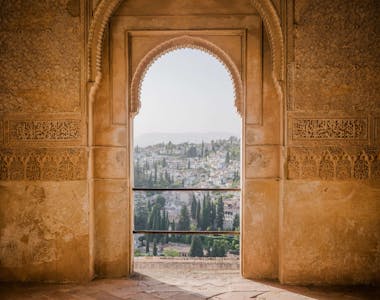
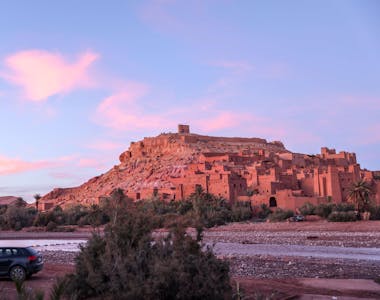
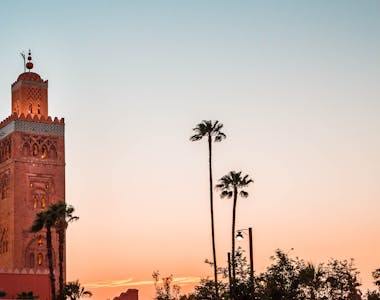
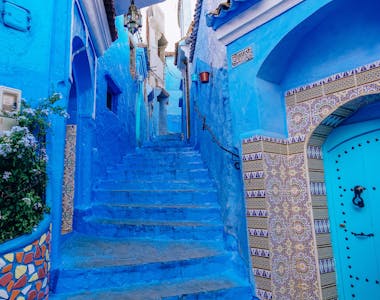
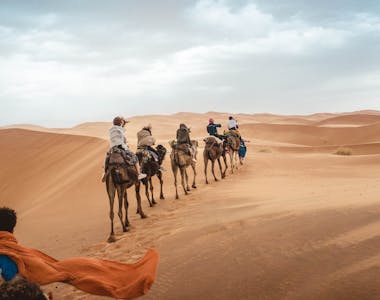
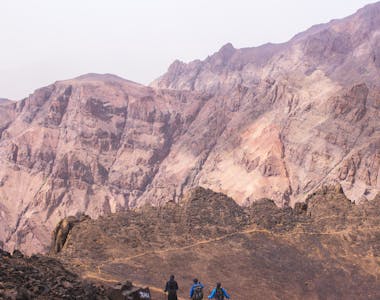
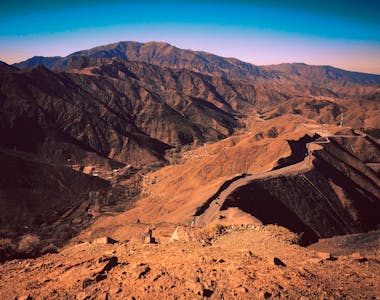
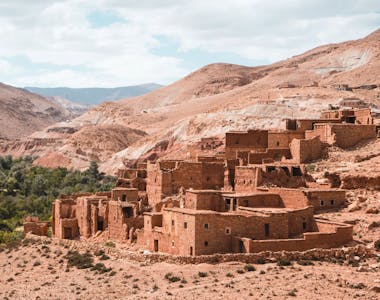
Book With Confidence
Monthly Payments
Spread the costs with no interest or additional fees
Best Price Guarantee
We won't be beaten on price. If you find this adventure at a lower price please get in touch!
Reserve now & pay later
Reserve your adventure today and pay later, free of charge
ATOL protected
Book with confidence
Hold your space today, for free
or book your trip with a deposit and then pay the rest in instalments.
Reserve your flights with us
Add flights to your booking and we'll take care of the rest. You'll get 24/7 support from our team & ATOL protection.
Speak to our experts
Call or email our expert team to find out more and help with ideas and planning.
